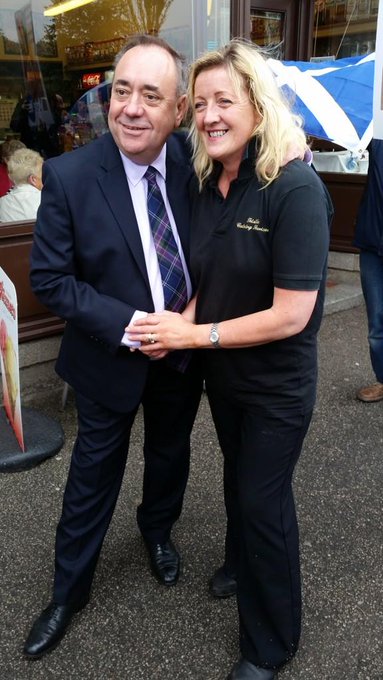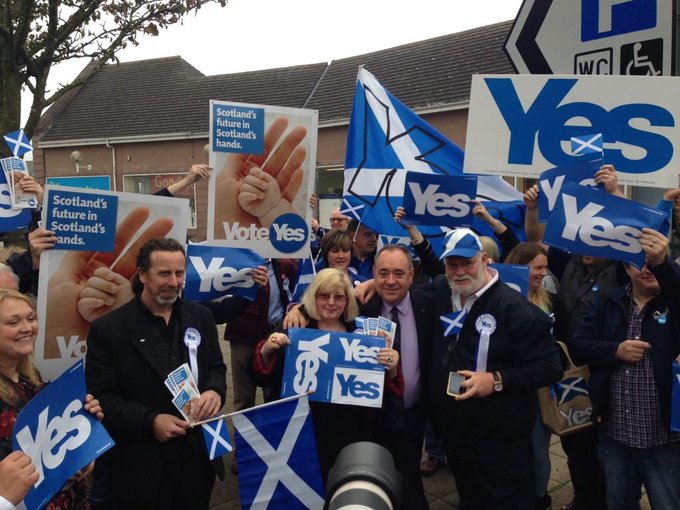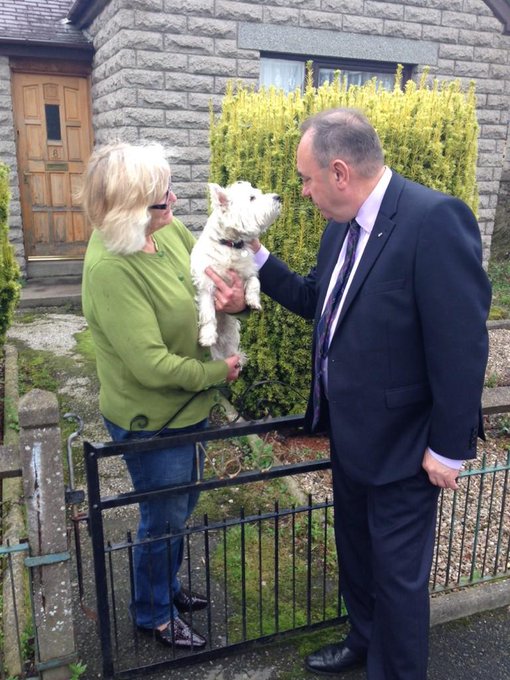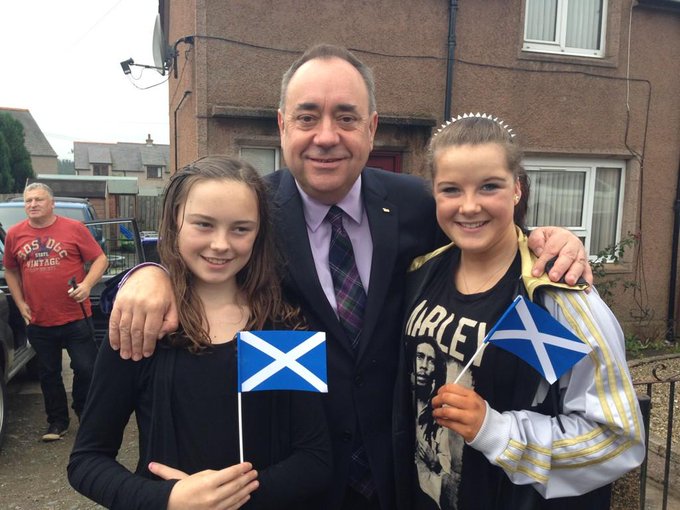Reunited
Kingdom: Scotland says no to independence
Scotland
has rejected independence from the UK in a historic vote with an
unprecedented turnout
19
September, 2014
With
31 out of 32 regions declared, 55.42 per cent had voted against going
it alone compared to 44.58 per cent who wanted Scotland to break the
307-year-old union with England.
The
result announced early on Friday UK time was the one favoured by
Britain's political leaders, who had campaigned hard in recent weeks
to convince Scottish voters to stay.
It
dashed many Scots' hopes of breaking free and building their own
nation.
Britain's
leaders had argued successfully that Scots are better off staying
part of the United Kingdom with England, Wales and Northern Ireland.
The
decision to reject independence will ease the worries of some
business leaders who had warned they would have to shift their
headquarters away from Scotland to England if Scots voted to become
independent.
Alex
Salmond, Scotland's First Minister and head of the independence
campaign, conceded defeat in an emotional speech to supporters in
Edinburgh.
"I
accept verdict of the people and call on all of Scotland to follow
suit," he said moments after Better Together won the referendum.
He
thanked the 1.6 million Scots who voted for independence. "We
have touched sections of the community who have never been touched
before by politics. These communities have touched us... I don't
think that will ever be allowed to go back to business as usual in
politics again.
Scotland First Minister Alex Salmond concedes defeat. Photo / AP
"I
think the process by which we have made our decision as a nation
reflects enormous credit upon Scotland. A turnout of 86% is one of
the highest of the democratic world, in any election or any
referendum in history."
He
ended his speech by saying: "We shall go forward as one nation."
British
Prime Minister David Cameron tweeted afterwards: "I've just
spoken to Alex Salmond, congratulating him on a hard-fought campaign.
I'm delighted the SNP will join talks on further devolution."
Alistair
Darling, the former UK Chancellor and leader of the Better Together
campaign, said it had been an "extraordinary night" and
that he had been "humbled by the level of support and the
efforts of our volunteers".
Mr
Cameron posted on Twitter that he had spoken to Mr Darling "and
congratulated him on an well-fought campaign".
Mr
Salmond had pinned his hopes on triumphing in one of the most
extraordinary political battles in British history, but the
determination of the people of Scotland means the United Kingdom
remains in tact.
Turnout
topped 88 per cent in pro-Union areas, but in the key working-class
areas where Yes needed big wins, turnout dropped to the mid-70s.
Councils
including Aberdeen, Angus, Clackmannanshire, Dumfries and Galloway,
Western Islands, East Dunbartanshire, East Renfrewshire, East
Lothian, Falkirk, Orkney Islands, Renfrewshire, Shetland and Sterling
all rejected separation.
Just
a few areas including Dundee, Glasgow, North Lanarkshire and West
Dunbartonshire backed independence.
Mr
Salmond's deputy Nicola Sturgeon first hinted the scale of the Yes
campaign defeat early in the night.
She
said: "I think there are very, very strong messages for the
political class in Scotland and messages we need to heed. This
campaign has been a joy to be part of, it's quite unlike anything
I've ever been part of in my life before."
Party over: Yes campaign supporters in George Square in Glasgow. Photo / AP
She
added: "If there is not a Yes vote tonight, I am deeply
disappointed. As have thousands and thousands of others, I have given
my heart and soul to this campaign but what has been amazing are the
number of people who have never been involved in politics before, who
have never campaigned as part of a political movement before, who
have got involved.
"We
must harness that, we must build on that. It's one aspect that leads
me to say this country will never be the same.
"I'm
disappointed if we don't come out of this evening with a Yes vote,
I'm not trying to spin my way out of that... I'll be deeply
disappointed personally as well as politically but I can't deny the
fact I am also exhilarated by this campaign."
Turnout for the referendum was high. Ballot boxes are opened at the start of the count in Aberdeenshire. Photo / AP
In
a bombshell first result, Clackmannanshire - rated by Credit Suisse
as the most likely to vote Yes - dramatically rejected independence
by 54 per cent to 46 per cent.
After
almost three years of bitter campaigning, warnings of economic
catastrophe and allegations of intimidation, threats and downright
lies, the 307-year-old Union looks set to survive.
The
No campaign reports stronger than expected results in Edinburgh, but
the Yes vote is thought to be holding up in Labour-dominated areas
around Glasgow and western Scotland.
Turnout
in many parts of Scotland has been very high, with some traditionally
Tory areas thought to have hit as much as 97 per cent. Early results
showed turnout in Orkney was 83.7 per cent, Renfrewshire was 87.3 per
cent and in Clackmannanshire it hit 88.6 per cent.
The
Shetland Islands voted No by 9951 votes to 5669, as there were
rumours Edinburgh had voted No by more than 60 per cent.
Late
surge in No campaign
Mr
Salmond's political career has built to this moment, but the fate of
his nationalist dream appears to have been sealed by a late surge in
support for the No campaign.
He
was all smiles on the campaign trail today, posing for selfies and
even kissing dogs in his Aberdeenshire constituency.
As
counting continued, Mr Salmond tweeted: "This has been a
remarkable day. Scotland's future truly is in Scotland's hands."
Mr
Salmond will come under pressure to resign but Liberal Democrat
leader in the House of Lords Jim Wallace said: "Never write Alex
(Salmond) off... it's not for me to say what he should do.
"He'll
have some hard thinking to do. I think he will be in a difficult
position - he has led his troops to the top of the hill, it's
difficult to march them down again."
Queen
watching results closely
The
Queen is said to have followed the results "closely".
Senior aides had been expected to meet from 1am to discuss her
official response to the verdict of the people of Scotland, likely to
involve a written statement later in the day.
Before
the results came in Tory chief whip Michael Gove told Sky News Mr
Cameron would fulfil his promise of extra powers for Scotland - but
that the rest of Britain would need "enhanced" rights too.
"I
think he will be anxious to ensure that after this referendum
campaign, we can bring the United Kingdom together," he said.
"That
means of course recognising that Scotland needs enhanced devolution
and there has been an effort to ensure Scotland gets additional
powers for its Parliament."
But,
he said, the rest of the UK - the "majority of the United
Kingdom", as he called it - needed its rights enhanced too and
"English voters" had to be protected.
'No' campaigners at a Better Together party in Glasgow. Photo / Getty Images
Asked
if he thought Scotland had voted to remain in the UK, Mr Gove told
Sky News: "It does look as though - and I'm keeping every limb
crossed - the United Kingdom will be safe."
Mr
Salmond pulled out of appearing at his local referendum count after a
final poll suggested that he is set to lose the historic independence
vote.
The
First Minister had been expected to visit the Aberdeenshire County
Council ballot count after spending the day in the county, where he
has his Scottish Parliament seat. However, after the release of a
YouGov poll showing the No campaign eight points ahead, a spokesman
for Mr Salmond said he would skip the event and instead fly to
Edinburgh.
The
decision could be taken as an indication that the SNP leader is
worried about appearing overly confident with polls pointing to a
defeat for the Yes campaign.
Mr
Salmond grew up in Linlithgow, West Lothian, but his political home
is in Aberdeenshire, where he lives in the village of Strichen with
his wife Moira.
He
is MSP for Aberdeenshire East, where he won 65 per cent of the vote
in the 2011 election, a majority of 15,000 over his nearest rival.
SNP
sources had indicated that he planned to visit the Aberdeenshire
count, at the Aberdeen Exhibition and Conference Centre, at some
point tonight before flying to Edinburgh for a planned victory rally
in the morning.
More
than 4.2million registered to take part in in the extraordinary vote,
and turnout could top 85 per cent.
Some
areas reported more than half of people had cast their ballot before
lunchtime.
Each
council area is announcing the total number of votes cast for Yes and
No, which are being collated at the national count HQ at Royal
Highland Centre near Edinburgh Airport.
The
referendum campaign has produced one of the most astonishing
campaigns in British political history.
Former
Labour Chancellor Alistair Darling, who led the Better Together
campaign, has clashed with Mr Salmond across the country.
But
in recent days Mr Darling has been overshadowed by the emergence of
Gordon Brown as the prize fighter in the battle for the Union.
The
length and breadth of the country, the debate has dominated TV talk
shows, radio phone-ins, dinner table chat and seemingly every
conversation in pubs, taxis, shops and schools
For
the first time, 16 and 17-year-olds were given the vote, leading to
the bizarre spectacle of youngsters in their school uniforms arriving
at polling stations to give their answer to the question: 'Should
Scotland be an independent country?
However,
the campaign has caused deep divisions, with whole communities,
families and even married couples disagreeing about what is right for
them and for the country
And
there were threats aimed at political opponents, with the Yes
campaign accused of trying to intimidate people opposed to
independence into changing their vote or keeping quiet.
Dark
side of campaign
Graffiti
was scrawled outside some polling stations, warning: "Vote
yes... or else."
Marie
Rimmer, who had been on St Helens council in Merseyside for more than
three decades, was arrested and charged with assault as she
campaigned against Scottish independence at a polling station in
Glasgow.
Rimmer,
67, a former leader of St Helens council in Merseyside, was arrested
this afternoon after a woman was allegedly assaulted near Shettleston
Community Centre in Glasgow.
The
centre, in the city's Amulree Street, was being used as a polling
station for people to cast their votes in the Scottish independence
referendum
Rimmer
is expected to appear at Glasgow Sheriff Court at a later date.
A
police spokeswoman said: "Police Scotland can confirm that a
67-year-old woman has been arrested and charged in connection with an
alleged assault on a female following an incident at Shettleston
Community Centre in Amulree Street, Glasgow, around 1pm today. A
report will be submitted to the procurator fiscal."










No comments:
Post a Comment
Note: only a member of this blog may post a comment.